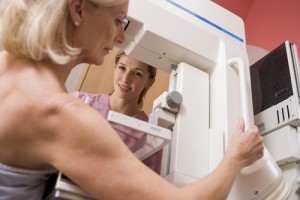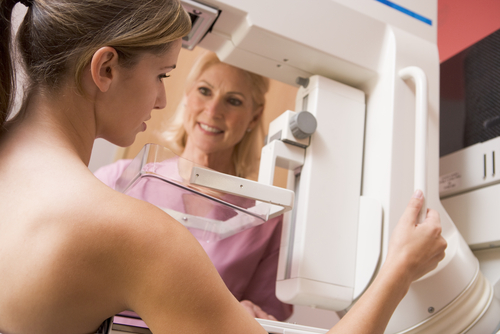 A new study published in BMJ, entitled “Effect of implementation of the mass breast cancer screening program me in older women in the Netherlands: population based study,” reports the first evidence that including women ages 70 and over in national breast cancer screens has no effect on the decline of advanced breast cases.
A new study published in BMJ, entitled “Effect of implementation of the mass breast cancer screening program me in older women in the Netherlands: population based study,” reports the first evidence that including women ages 70 and over in national breast cancer screens has no effect on the decline of advanced breast cases.
Breast cancer is the major contributor to cancer incidence and cancer-related mortality in women, with the latter increasing with age. Screening programs introduced to detect early breast cancer stages are assumed to benefit older women. Accordingly, many recommended breast cancer guidelines include screening with mammography for women aged up to 75 years. In 1998, The Netherlands extended the upper age limit of the mass screening program from 69 to 75 years.
However, since clinical trials rarely include women over the age of 60 years, no current data exists for the beneficial effects of breast cancer screening in older women.
A team from the Leiden University Medical Centre took advantage of the change in Netherlands’s guidelines from 69 to 75 years of age to study the impact on diagnoses of late-stage cancers in a later aged group. Specifically, the authors tracked 25,414 new cases of breast cancer diagnosed among Dutch women in that age range from 1995 to 2011.
The authors detected a significant increase of early-stage breast cancer between 70- to 75-year-old women after extending the screen: 248.7 to 362.9 per 100,000 women. Conversely, no significant decrease was observed for the incidence of advanced breast cancer within the screen period: from 58.6 to 51.8 cases per 100,000 women.
The study concludes that screening aged women is therefore limited and may lead to over diagnosis, since no significant decrease is observed for advanced stage cancer, and around 20 extra early-stage cancers were detected.
Older women with breast cancer often exhibit comorbidities and are more prone to suffer from breast cancer treatment adverse outcomes. Thus, the phenomenon of ‘over-diagnosis’ lead to ‘over-treatment’, which could seriously undermine the quality of life of these patients.
[adrotate group=”3″]
Caitlin Palframan, PhD, head of policy at Breakthrough Breast Cancer, commented on the Dutch study in a WebMD interview, “This study provides some useful insights, as women over 70 were not included in the original breast screening trials on which modern screening programs are based. It’s very important we learn more about the benefits and risks for this particular age group before we decide whether to offer these women routine screening.”
Cancer Research UK is currently performing a large randomized control trial with women from age 70 to 73 to assess the effects of screening on breast cancer incidence and mortality within this age group. The team from the Leiden University Medical Centre proposed that until the results of the trial are available, the screening on aged women should not be performed on a large scale, rather “the harms and benefits of screening should be weighed on a personalized basis, taking remaining life expectancy, breast cancer risk, functional status, and patients’ preferences into account.”

